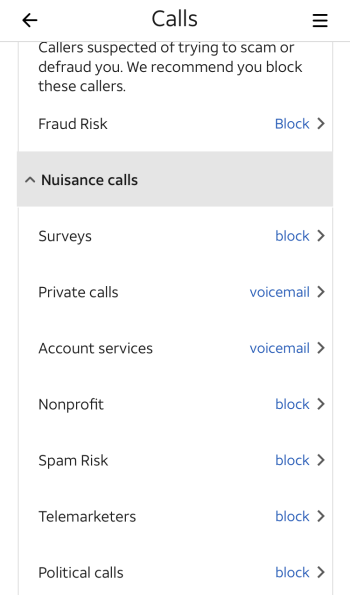That's what I've been doing since they introduced it. Add in the call blocker I have (ATT's, which appears to be better than the free Verizon app I've installed on relatives' phone [more/better options on ATT]), my phone is "silent" other than the people I allow in by creating a contact for them.According to this Apple Support page, an iPhone running iOS 13 or later can filter phone calls from unknown callers, or install apps that block spam:
EDIT: in light of the replies that came in while composing this, yes, early iPhone call blockers were not great. Today, at least with the ATT call blocker, has the attached settings. Can get same with some other apps, but unfortunately, subscriptions. Iirc, ATT is using re-badged Hiya.
Attachments
Last edited:



